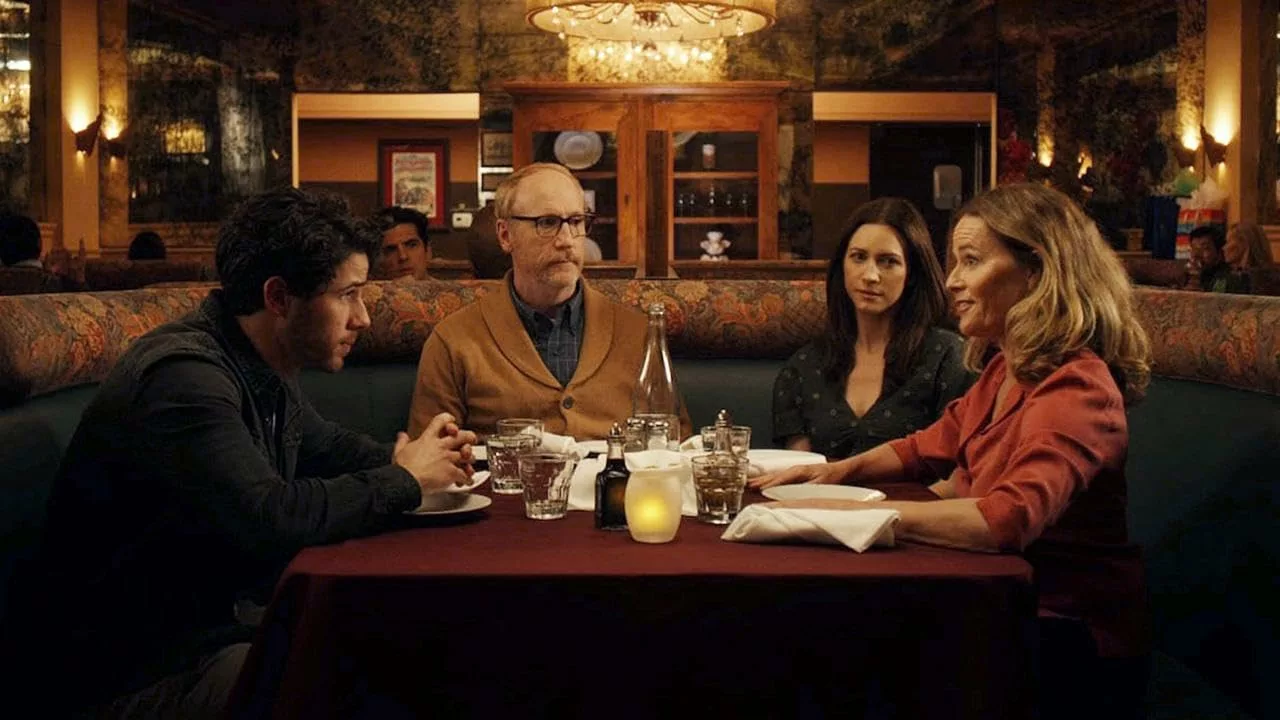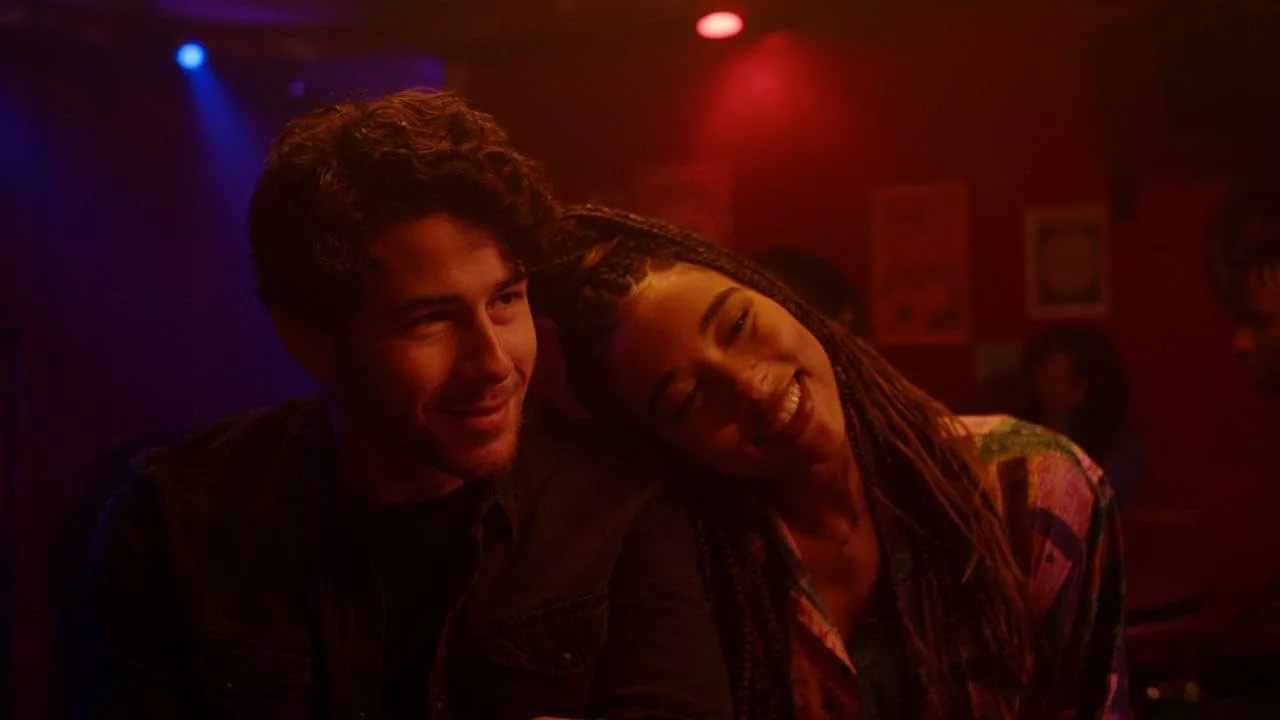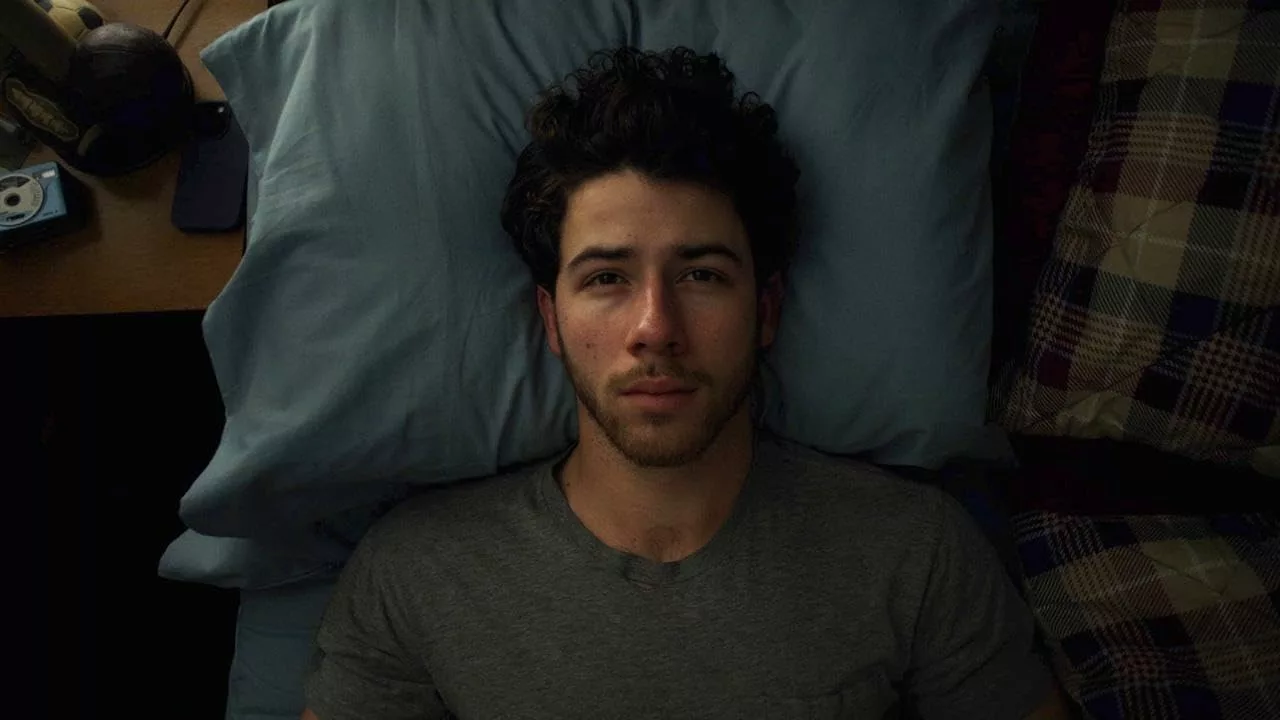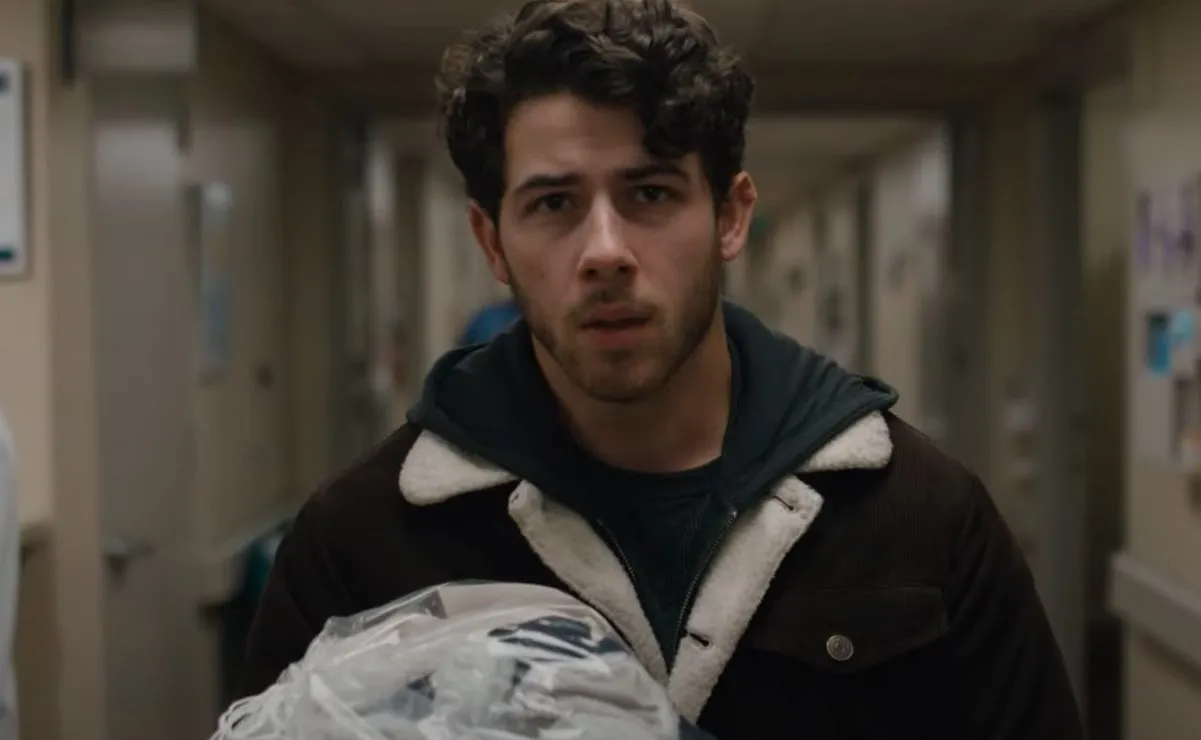When Renn Wheeland returns to his hometown of Cleveland, it isn’t for the reasons one might expect from visiting family. The aspiring writer has come to pay his final respects and say goodbye to his mother, Lily, whose death from illness has left those closest to her shattered.
Played with raw vulnerability by Nick Jonas, Renn struggles to process the reality of his mother’s passing in The Good Half, a perceptive new drama from director Robert Schwartzman.
Presenting the complicated stages of grief with honesty and humor, the film follows Renn as he works through tense reunions with loved ones as well as painful memories surfacing without warning. Helping him open up along the way is new companion Zoey, brought to vibrant life by Alexandra Shipp. Yet it is the sibling bond between Renn and sister Leigh, powerfully portrayed by Brittany Snow, that reveals the most about coping with crippling loss.
Through heartfelt moments of both laughter and tears, The Good Half sheds light on how death transforms lives while reminding us of family’s ability to heal even the deepest of wounds. Renn’s journey is one many will relate to—a poignant story of finding purpose after profound personal upheaval.
Facing the Past to Heal the Future
This film tells a story of grief rooted in both the past and present. After his mother, Lily, passes away, Renn returns to Cleveland from Los Angeles to prepare for her funeral. But flashes back reveal the life and family he once knew, painting a fuller picture of what’s been lost.
Renn had always been closest to his free-spirited mother, who encouraged his creative spirit. But as a young boy, one traumatic day he became separated from her in a store, leaving a deep mark. In the present, Lily’s absence now hollows out the entire Wheeland family.
Struggling the most is Renn’s older sister Leigh, trying to hold everything together as tensions rise. A perfectionist, she resents how emotionally distant Renn has become following their childhoods of favoritism. Leigh wants Renn to grieve on her terms and help more with arrangements, but he keeps everyone at arm’s length.
Their difficult dynamic stems too from Leigh’s dislike of Lily’s husband, Rick, who never truly committed to caring for Lily during her illness. As her declared next of kin, Rick now makes decisions Leigh and others feel don’t honor Lily’s wishes. Conflict between him and the stubborn Renn constantly threatens to boil over.
Caught in the middle is their father, Darren, who loved Lily deeply and still lives alone with only memories to comfort him. His gentle nature contrasts with Renn and Leigh’s volatility as he tries to keep the peace. Though disappointment lingers that Renn wasn’t around more to help Lily, Darren accepts his children as they are.
Into this dysfunction comes Zoey, who meets Renn on his flight. Despite her own divorce, the empathetic therapist seems to see straight through Renn’s walls to the hurting man within. Through humor and empathy, she alone succeeds in drawing him open to the long-buried pain that now demands facing head-on.
How Renn navigates these choppy waters to find closure, and hopefully a way forward, forms the heart of this poignant story of a family learning that in confronting the hard truths of the past, healing of the future has a chance to begin.
Facing Grief, Finding Healing
This film delves deeply into how losing a loved one fundamentally alters one’s world. For Renn Wheeland, nothing will ever be the same after the death of his mother, Lily. But watching how he and his family face this challenge reveals some universal truths about grief.
Renn felt closest to his free-spirited mom, who encouraged his creative side. So without her, he feels rudderless, coasting through obligations back home in a daze. Scenes of Renn merely existing recall how paralyzing the pain of loss can feel. His usual defense of humor falls flat now.
Other characters process grief quite differently. Sister Leigh wants order and control, angrily directing plans. But her outbursts stem more from mourning what she’s lost than from actual ire with Renn. Father Darren bottles up anguish, relying on books for answers his heart knows don’t exist.
Stepdad Rick, who drifted from Lily, clings tightly now to roles and rituals, perhaps more for himself than honoring her memory. This dredges past resentments to the surface between him and Renn, who knew Lily’s true self. Their clashes ring true in showing grief’s power to fracture or reveal what was already broken.
Then there’s therapist Zoey, who recognizes suffering in others because she understands her own. Outside the Wheeland fray, she gently guides Renn to acknowledge what’s truly eating him up inside. Through humor and empathy, she models that healing does not mean “fixing” pain but carrying it with openness and grace.
Funerals lay bare conflict over final goodbye details, from urn choices to eulogies. But above all, they force the realization that another beloved presence can never be replaced. Tracing this family’s steps highlights what every bereaved person knows: that while time may soften sorrow, a part of your heart buries itself with the one you’ve lost.
In laying grief’s complexity bare with such nuance, Schwartzman’s film uncovers why we all must walk this difficult road someday. But he also shows how, by facing loss together through understanding, not judgment, its heaviest toll can become a little lighter to bear.
Heart and Soul
This film belongs to Nick Jonas. His performance as Renn breathes devastating life into a man wrestling with love, loss, and everything in between. Scenes of hesitation and hollow humor peel back to reveal depths of longing hardly expressed through words alone. Jonas ensures we feel each flickering feeling.
Among those that Renn holds closest is Brittany Snow’s Leigh. Where Renn conceals, Leigh confronts—yet both grieve the same woman. Snow paints a tactile portrait of a sister aching to understand while fearing the answers. Her climactic moment cuts like shattered glass, painful in its piercing truth.
Flashes of Elisabeth Shue hint at the mother motivating this family’s every frame. Shue infuses fond recollections with warmth, nourishing our own. Her chemistry with Jonas births a bond broken too soon, its beauty lying in what remains unsaid between eyes speaking volumes.
Arquette injects prickly life into the disliked stepfather, lending humor to tensions while respecting deeper wells of care. Matt Walsh ensures the father’s fumbling feels genuine as hands grasp to give relief. Alexandra Shipp imbues her confidante with care not crossed without cause, never dulling her spark through others’ storms.
Guiding us through grief’s tumult, these acting tours de force breathe soul where words fail. Each thread in this tapestry stems from faces reflecting the rawest realities of relationships in flux. Their craft leaves scenes, and the people in them, long imprinted in hearts, recognize pieces of those no longer here but forever holding us together, in the end, through love.
Finding the Right Balance
Robert Schwartzman shows deft ability in blending comedy, drama, and complex family dynamics. The Good Half navigates grieving’s uncertain terrain, with moments accented by humor not undercutting sadness. Schwartzman gives scenes their due emotional weight without leaning too long on tears.
Comedy provides respite from heaviness, yet some performances feel straight from sitcoms. Breaking into homes lands flatly after loss. Elsewhere, jokes punctuating uncomfortable dinners feel authentic release. Navigation through pain proves messier than neat resolution, and Schwartzman respects this.
Flashbacks grant insight without overshadowing the present. We glimpse the bond fueling each character’s fracture and see what time cannot replace. Shue imbues scenes with warmth, cutting deeper with each viewing. Cufari perfectly captures youthful earnestness, impacting all after.
Visually, Schwartzman employs subtler techniques. Natural lighting maintains realism where dramatics could overpower.Slow-motion reserves impact for climaxes. Clever transitions thread past and present, illuminating how memories filter new perceptions. Music serves an atmosphere without manipulation.
Genres effortlessly merge through the deft passing of tones. Schwartzman allows comedy to acknowledge sorrow and drama to find humor even in ashes. Life resists clean boxes, and his direction understands grieving defies them too. Some moments feel overwrought, yet his skilled hand more often locates life’s messy balance—and in loss, such equilibrium can be the rarest of all.
The Resonance of Loss
This film struck a profound chord by capturing grief’s impact with disarming honesty. So many scenes rang true, stirring personal memories of my own loss. From chasing simple routines in a world forever changed to reliving past moments where a smile or laugh could lift foggy days, aspects of Renn’s journey unfold like the pages of my own story.
Schwartzman guided powerful performances that brought this family to life. The conflicts and love between Renn, his sister, and his father felt woven from threads of my own relationships. Their attempts to find footing amid ever-shifting ground, balancing anger with affection—it mirrored dynamics I know well. And Lily, whose spirit lingered in every choice and memory, was rendered with a care that honored her enduring role.
Two scenes in particular burrowed deeply. When Renn flipped through his mother’s planner, glimpsing entries full of plans for a future stolen away, tears flowed unstoppably. As with his raw eulogy, the honesty of which echoed truths often left unsaid, Memories are all that’s left to share with loved ones gone, and this film imparted that lesson with quiet grace.
While loss marks an end, this story’s message resonated long after. As Renn learns to find purpose in guiding others through their own grief, inspiration emerges. Even darkness holds light if we open our eyes to community and forge ahead together. In revisiting life’s beauty through empathy and care for one another, I think the good in each of our personal stories can live on.
The Resonance of Loss
This review has shed light on what makes The Good Half resonate so deeply. At its core, the film offers a powerfully raw, and yes, funny at times, depiction of navigating grief and family in the aftermath of loss. Nick Jonas in particular immerses us in the emotional journey of Renn as he begins piecing his life back together without the person who knew him best.
Memorably mining the universal yet uniquely personal experiences we all face when death strikes close to home, the film feels boldly authentic. From mundane rituals to profound realizations, Brett Ryland’s script captures grief’s complexity with subtlety and care. For anyone hoping to better understand their own grief or simply appreciate moving portrayals of the human experience, The Good Half promises catharsis through shared understanding and laughter through tears.
While tears are assuredly shed, the film leaves us with hope that even in the hardest of times, family bonds can be repaired and life’s beauty again embraced. It will resonate strongly with all in a parent-child relationship, a testament to the power of authentic storytelling. For exploring life’s hardest truths with such care, warmth, and artistic flair, The Good Half deserves wide acclaim.
The Review
The Good Half
The Good Half offers a poignant, nuanced portrayal of grief's turbulent journey. With compassion and dark humor, it tackles loss and family strife with emotional acuity. Nick Jonas, in particular, delivers a deeply affecting lead performance at the heart of the film. While not without flaws, Robert Schwartzman's drama feels piercingly authentic in chronicling the ruptures we all face in life's hardest moments. For balancing raw humanity with stylistic flair, The Good Half earns my high recommendation for those seeking both catharsis and greater understanding.
PROS
- A deeply emotional and authentic portrayal of grief
- Standout lead performance from Nick Jonas
- Captures the complexities of family relationships.
- Effective exploration of loss and the impact on loved ones
- A nuanced screenplay that tackles a difficult subject matter
CONS
- Some contrived subplot elements
- Occasional tonal inconsistencies
- Potential for certain scenes to feel overly sentimental
- Uneven pacing at times
- May strike some viewers as too dark in nature.





















































Discussion about this post